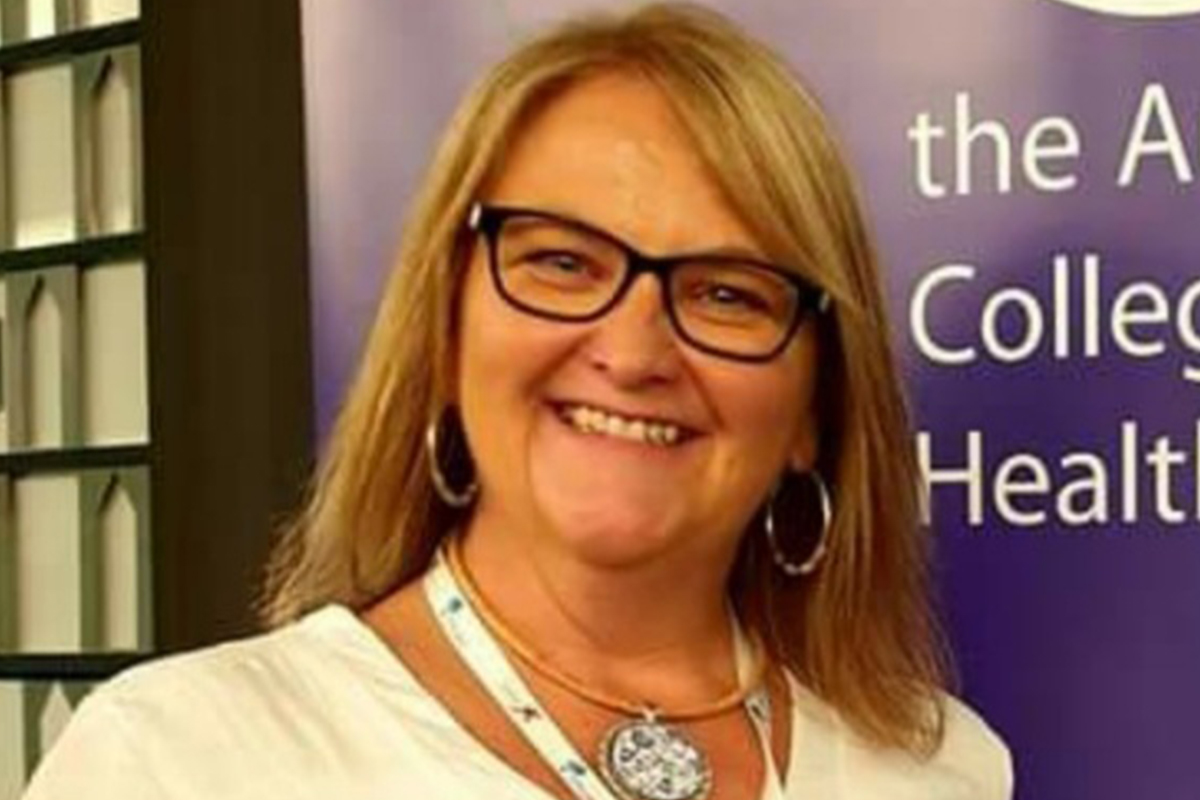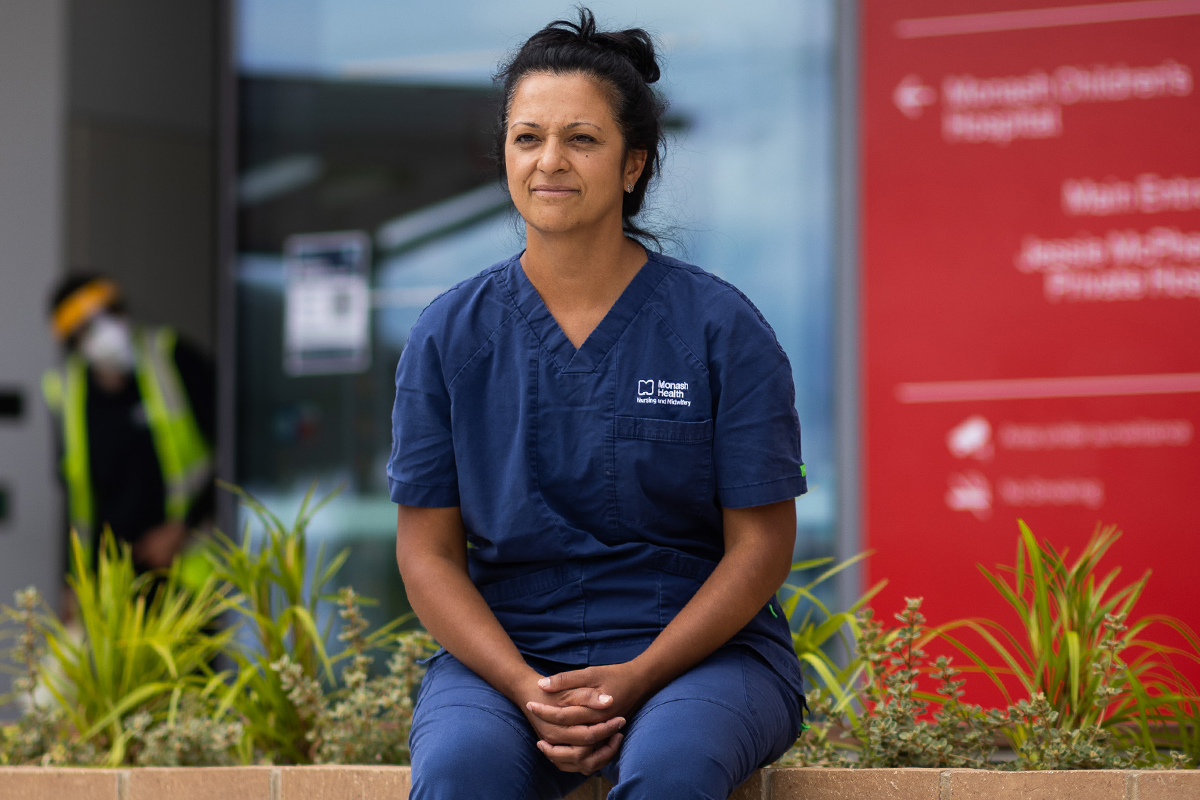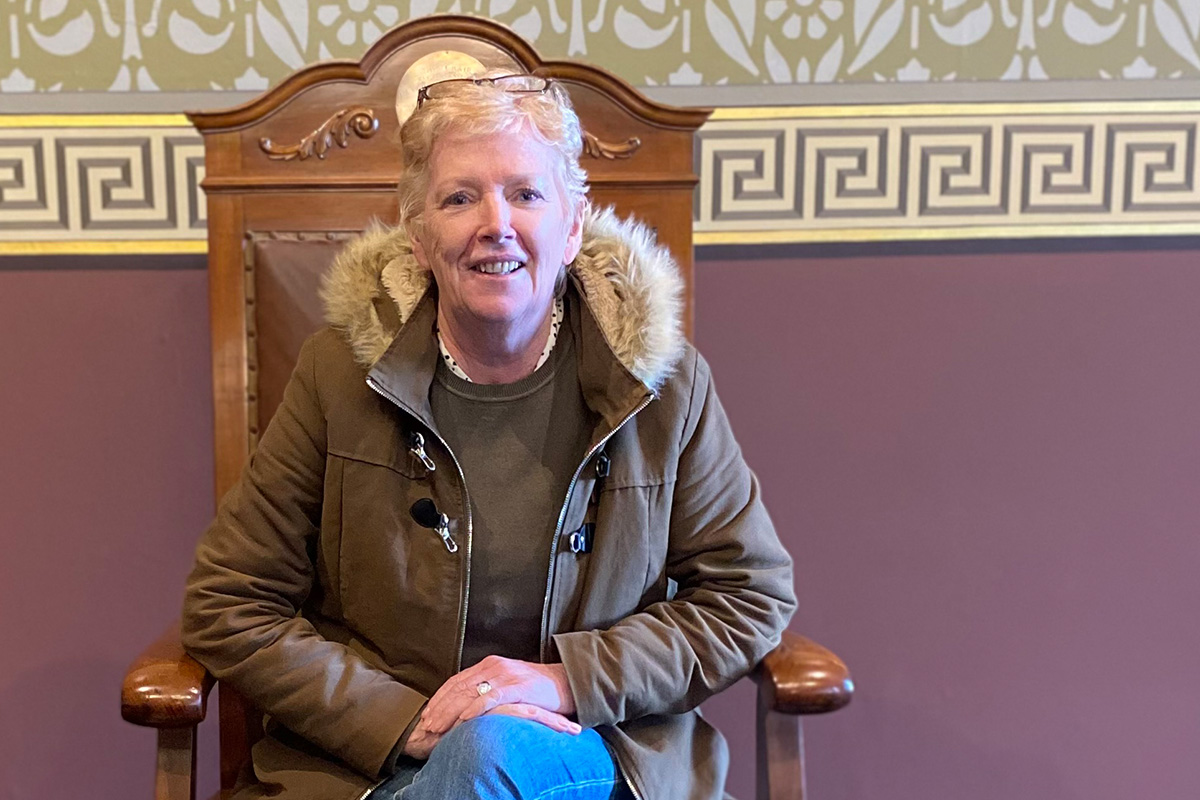
Registered nurse Adrian Spinelli isn’t 100 per cent sure where his interest in healthcare came from, beyond a vague desire to help people. No one in his family worked in healthcare and as a child he initially thought he might want to be a lawyer or an accountant. But when he was around 15 years old, he began volunteering with St John Ambulance.
‘I met some nurses there and I was impressed with them; the way they interacted with the patients in particular, and the way that they were able to share their knowledge.’
It was all the inspiration he needed. Straight out of high school, he got into his first preference – nursing at RMIT – and upon graduation he started working at the Austin Hospital. Fourteen years later, he’s still there. And he’s still pleased with his choice: ‘I’m so much happier in nursing than I probably would have been as a lawyer or an accountant,’ he says.
‘I think that’s because we are indiscriminate with our care. We provide care to whoever needs it. It’s not about ‘you’re a good person or you’re a bad person, or you can afford it, you can’t afford it. It’s just: you’re a person, and you need help. I really value that.’
From ED to gen med
For much of his career, Adrian has worked in the emergency department and he’s passionate about emergency nursing. But COVID saw him take a sidestep. ‘I still love ED nursing,’ he explains, ‘but for me it was time to step away. It got to the point during the height of the pandemic where it was either step away from the ED or step away from nursing.’
He went into COVID vaccination for a little while, which provided a much-needed break from the pressures of the ED, and even though he thought he’d go back to emergency he has instead ended up in general medicine where he is now a nurse unit manager. This role has helped him to cultivate new passions around staff welfare and reducing occupational violence and aggression (OVA).
‘I sit on our organisational OVA prevention committee and I’m involved in a number of projects in my workplace around how we can better manage behaviours of concern with some of our patients,’ he says, emphasising that OVA affects staff and patients.
‘There are on-the-ground strategies that we can implement that are really relevant to our environment,’ he notes. ‘It’s about how we as nurses can advocate for change in the workplace.’
Branch Council
Advocating for change in the workplace being the bread-and-butter work of unions, Adrian is a natural fit for Branch Council. He has been a Job Rep for more than a decade and in 2023 became a first-time councillor.
Among the reasons he wanted to join Branch Council, he highlights a desire to progress systemic nursing issues ‘from a union perspective’. He’s especially keen to see progress on issues related to OVA as well as conditions that affect recruitment and retention into the profession.
‘How do we work to retain our nurses and midwives? What conditions will keep them within the professions? How do we keep them enjoying the work that they entered to do? How do we keep that compassionate spirit amongst our nurses and midwives? The burnout is real, so what can we do to assist the current and next generation of nurses and midwives to stay in this workforce?’
These are big questions, and the 2024 public sector log of claims is heavily focused on matters that pertain to them. For Adrian, becoming a Branch Councillor in an EBA year is a chance to better understand how decisions are made in the union. ‘Being an EBA year, I’d really like to learn how ANMF manages advocating and pushing for our log of claims while pushing back on the employers and government – as we obviously do need to have ongoing relationships with whoever’s in government, because most of our public sector members are employed in facilities employed by the government.’
Finding the balance is important for Adrian, at all levels. As a NUM, he strives to balance his staff’s rights and his rights – ‘I’m a nurse and I’m employed under this EBA too’ – with his employer’s needs. The answer, he says, is always guided by the EBA: ‘if the EBA says you get it, you get it. No questions asked,’ he says.
If it doesn’t, that’s when discussions can begin about change: coming up with ideas to submit as motions for debate at delegates conferences. After all, he says, ‘we are a collective decision-making body.’




